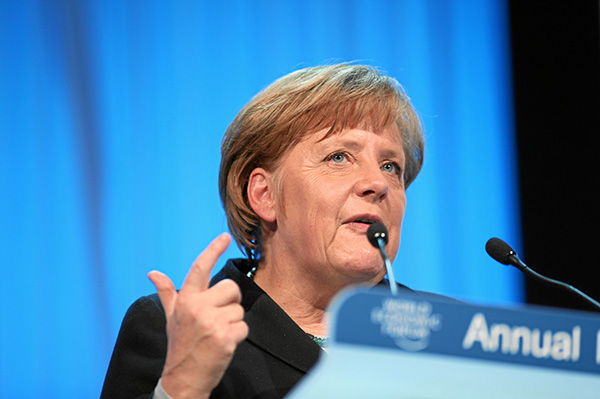Ankara and Berlin remain split on many subjects and an expansion of the customs union deal between the European Union and Turkey will not be on the agenda in the near future, German Chancellor Angela Merkel has stated. Hurriyet Daily News reports.
“We are not opening new chapters in Turkey’s [EU] accession bid and we have lowered membership preparation aid to a minimum. Also, for the time being the customs union deal with Turkey will not be changed or updated,” Merkel said on Aug. 16 when asked about ties with Turkey during a live interview on YouTube.
The Customs Union between Turkey and the bloc entered into force on Dec. 31, 1995. It covers all industrial goods but does not address agriculture (except processed agricultural products), services or public procurement right now.
The European Commission had stated on Dec. 21, 2016 that it had asked the European Council for a mandate to launch talks with Turkey to modernize the existing EU-Turkey Customs Union.
The upgrade of the agreement forms a central part of efforts to deepen relations in key areas of joint interest identified at the EU-Turkey Summit of Nov. 29, 2015 and in the EU-Turkey statement of March 18, 2016.
Merkel’s remarks came one day after German Foreign Minister Sigmar Gabriel suggested that economic pressure on Turkey “is working.”
“We have differing opinions on various subjects and we do not shy away from voicing these differences in our continuing dialogues,” Merkel said at the event, which aimed to woo young voters ahead of the Sept. 24 general election in Germany.
“We have not been able to convince each other on many issues and other problems have been added on top of those. Our relations are going through a tough period but we should continue dialogue,” she added.
Merkel said the warnings issued by her government on investing in Turkey and traveling to the country “had gotten Turkey thinking, but these are not enough.”
“We cannot ignore the fact that Turkey is not only [President Recep Tayyip] Erdoğan and his government. Almost 50 percent said ‘No’ to the recent constitutional changes and they have expectations from us. We must continue the hard bargaining and not engage in wrong deals. But we cannot also send wrong signals to that 50 percent that have their hopes in us and want to be in dialogue with us,” she added.
Erdoğan claimed on Aug. 12 that tension with Europe was due to “European domestic politics” and Ankara’s relations with Berlin would improve after Germany’s parliamentary election.
“France and Austria did this before. Now we see that Germany is following the same strategy. I believe this situation will improve after the election,” he said.
Relations between the two countries have been severely strained due to a number of reasons since last year. Germany had to withdraw its Tornado aircrafts and troops from the İncirlik air base in the southern province of Adana after Ankara refused permission for a visit to the base by German lawmakers.
In a reconciliatory move, Ankara said a visit to a Konya military base would be possible, as German troops deployed there are operating under a NATO mission. However, this was also later blocked by Turkey in protest against Berlin’s ban on a visit by President Recep Tayyip Erdoğan to hold a rally with Turks living in Germany when he attended the G20 summit in July.
The row over Konya was averted after an intervention from NATO Secretary-General Jens Stoltenberg.



















































